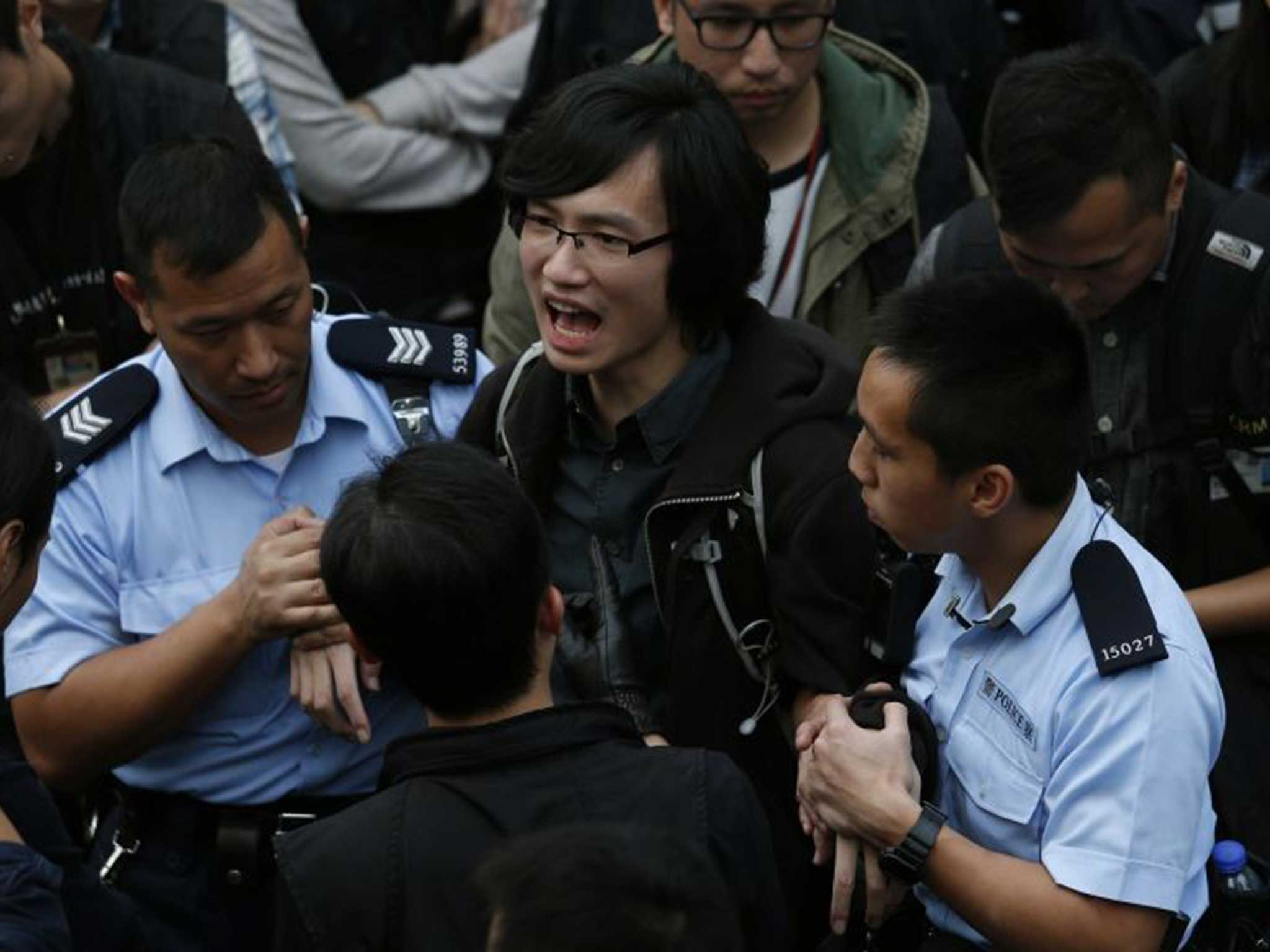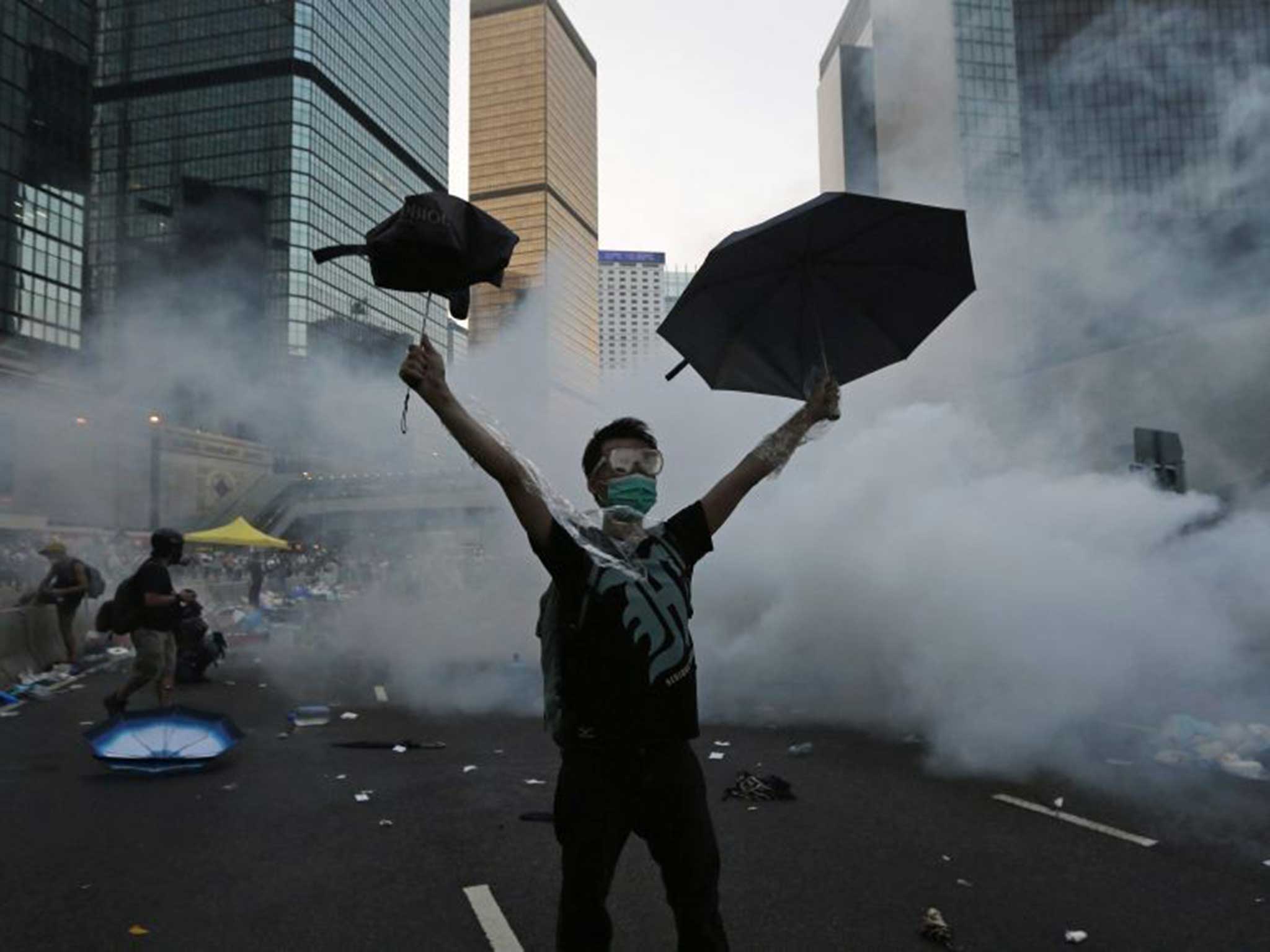Hong Kong's protest camps flowered out of a living tradition of democracy
In 150 years of colonial rule, this speck of south China learnt to embrace the European values that the British brought with them


Your support helps us to tell the story
From reproductive rights to climate change to Big Tech, The Independent is on the ground when the story is developing. Whether it's investigating the financials of Elon Musk's pro-Trump PAC or producing our latest documentary, 'The A Word', which shines a light on the American women fighting for reproductive rights, we know how important it is to parse out the facts from the messaging.
At such a critical moment in US history, we need reporters on the ground. Your donation allows us to keep sending journalists to speak to both sides of the story.
The Independent is trusted by Americans across the entire political spectrum. And unlike many other quality news outlets, we choose not to lock Americans out of our reporting and analysis with paywalls. We believe quality journalism should be available to everyone, paid for by those who can afford it.
Your support makes all the difference.Going, going...As scheduled, thousands of police accompanying bailiffs moved into the Central district of Hong Kong Island Thursday, using box cutters and pliers to dismantle the protest there: the intricate construction of a gentler, kinder society that young Hong Kong created across the blank motorway that rushes past the government buildings where what remains of the former colony’s democracy is quietly wasting away.
I reported events here in early October, during the days when it ballooned from being the passionate concern of a politically engaged minority to a movement that swept up hundreds of thousands of mostly young people.
It was difficult not to be moved by it. The odds against success were enormous. This was one speck of south China, standing up to the paranoid might of a doctrinaire party that long ago lost contact with its founding doctrine and now clings grimly to its privileges. David versus Goliath was a walkover by comparison. But here they were, camped out for months on a motorway, just asking the People’s Liberation Army to come barrelling out of their barracks and do a Tiananmen Square on them.
Like the other movements that have suddenly erupted around the world over the past five or six years, it had its own rhizomatic energy: resisting the logic of traditional organisations and instead growing fast and formlessly by means of ceaselessly established connections between individuals and loose groups. The inventors of rhizome theory, Gilles Deleuze and Félix Guattari, write of how a movement like this “spreads like the surface of a body of water, spreading towards available spaces… eroding what is in the way”. It is not answerable to leaders, it cannot be ordered about.
A rhizomatic movement is hopeless at negotiating with power – the talks with Hong Kong’s government predictably went nowhere. But power must nonetheless treat it with kid gloves because, thanks to social networks, it is on a hair trigger. Young Hong Kong knows precisely what it hates and fears: a glance across the water to the mainland is enough to show the future heading Hong Kong’s way, with its show trials and secret prisons, its puppet media and academia, its corrupt, mendacious and paranoid party.

In 150 years of colonial rule, this speck of south China learnt to embrace the European values that the British brought with them. There was nothing evangelistic about what we planted here; if it was more liberal and accommodating than other colonial creations elsewhere, that was perhaps because it was the last one, and we wanted to leave some kind of legacy, a cultural and political showcase.
Call it imperial vanity if you like, but it was a recognition that ideas of rights and justice and even, within limits, political representation had taken root. And now, as the elimination of those values looms into view (the “one country, two systems” arrangement expires in 2047), people who were infants when the Union Flag was run down understand clearly what they will soon be missing.
Join our commenting forum
Join thought-provoking conversations, follow other Independent readers and see their replies
Comments